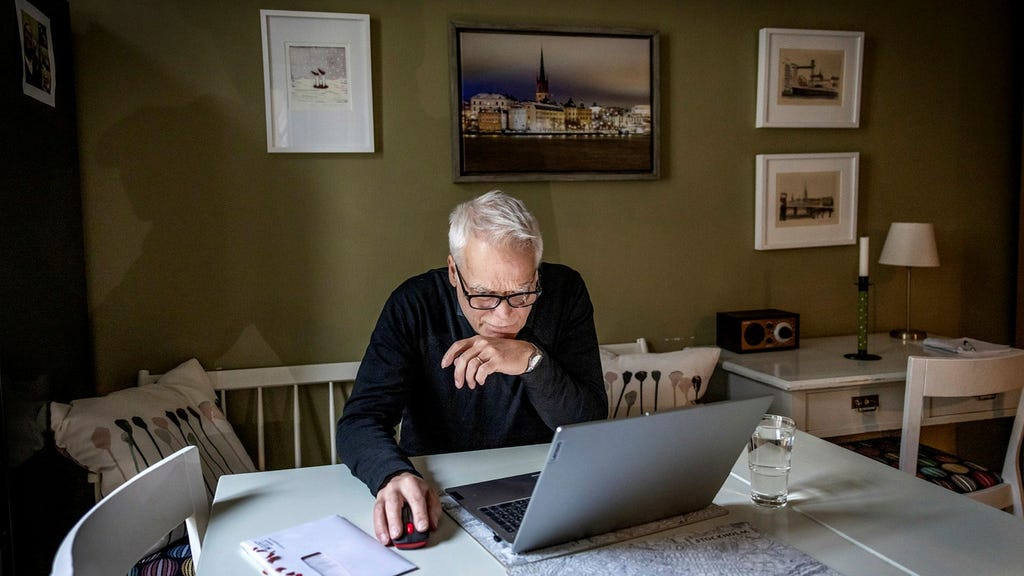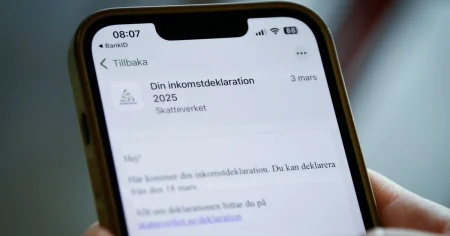Anne, a victim of fraud, found herself repeatedly denied compensation by her bank, Nordea. Her frustrating experience involved countless calls and emails, each met with rejection and bureaucratic roadblocks. The bank claimed she was responsible for the fraudulent transactions, despite her insistence that she had taken all necessary precautions and reported the incident immediately. The emotional toll of the ordeal was immense, leaving Anne feeling helpless and betrayed by the institution she had trusted with her finances. The constant battle to prove her innocence and reclaim her stolen funds consumed her time and energy, adding insult to injury. She felt as though she was speaking a different language than the bank representatives, unable to penetrate their rigid adherence to procedures and seemingly indifferent attitude towards her plight.
Exhausted and demoralized after months of fruitless efforts, Anne reached out to Stefan Stråhle, a former police officer with expertise in financial crime. Stråhle, familiar with the tactics often employed by banks to avoid paying out compensation, immediately recognized the patterns in Anne’s case. He understood the power imbalance between individuals and large financial institutions, and how this could be exploited to deny legitimate claims. He reviewed Anne’s documentation meticulously, identifying key pieces of evidence that supported her claim and highlighted the bank’s procedural failings. He understood that Nordea’s initial denials were based on a superficial understanding of the case, and he was confident that a more thorough investigation would reveal the truth.
Stråhle’s approach was strategic and persistent. He contacted Nordea’s customer relations department, presenting a meticulously crafted argument that outlined the bank’s obligations under consumer protection laws. He emphasized the inconsistencies in their handling of Anne’s case and provided concrete evidence demonstrating her innocence. Instead of engaging in emotionally charged accusations, he maintained a professional and factual tone, focusing on the legal and ethical aspects of the situation. He meticulously documented every interaction, ensuring a clear paper trail that could be used as leverage if necessary. His years of experience in law enforcement had taught him the importance of thorough documentation and clear communication in complex cases.
Within a week of Stråhle’s intervention, Nordea’s tone shifted dramatically. They contacted Anne, no longer disputing her claim, and simply asked for her bank account details to transfer the compensation. The swift turnaround was a testament to Stråhle’s effective advocacy and his understanding of the inner workings of the banking system. He had successfully navigated the complex bureaucracy and exposed the flaws in Nordea’s initial assessment. For Anne, it was a moment of immense relief and vindication. She had finally been heard and acknowledged, and her faith in the possibility of justice restored. The experience, however, left a lingering sense of unease about the vulnerability of ordinary individuals in the face of powerful institutions.
Reflecting on the experience, Stråhle highlighted a systemic issue within the banking industry. He believes that many individuals, lacking the knowledge or resources to effectively challenge banks, are unjustly denied compensation for fraudulent activity. These individuals, often overwhelmed by the complex terminology and procedures employed by banks, are easily intimidated and discouraged from pursuing their claims. Banks, aware of this power imbalance, often exploit it to minimize their financial losses. Stråhle argues for greater transparency and accountability within the banking sector, advocating for clearer communication and simpler procedures for handling fraud claims. He believes that banks have a moral and legal obligation to protect their customers and ensure fair and equitable treatment in all circumstances.
This case underscores the importance of seeking expert advice when dealing with complex financial disputes. Individuals who find themselves victims of fraud should not hesitate to reach out to consumer protection agencies or legal professionals who can provide guidance and support. While the experience can be daunting and emotionally draining, it is crucial to remember that rights exist to protect consumers, and persistence can ultimately lead to a just resolution. Anne’s story serves as a reminder that even in the face of seemingly insurmountable obstacles, individuals can prevail with the right support and a determined pursuit of justice. It also highlights the critical role of individuals like Stråhle who dedicate themselves to empowering those who are unfairly treated by powerful institutions.














